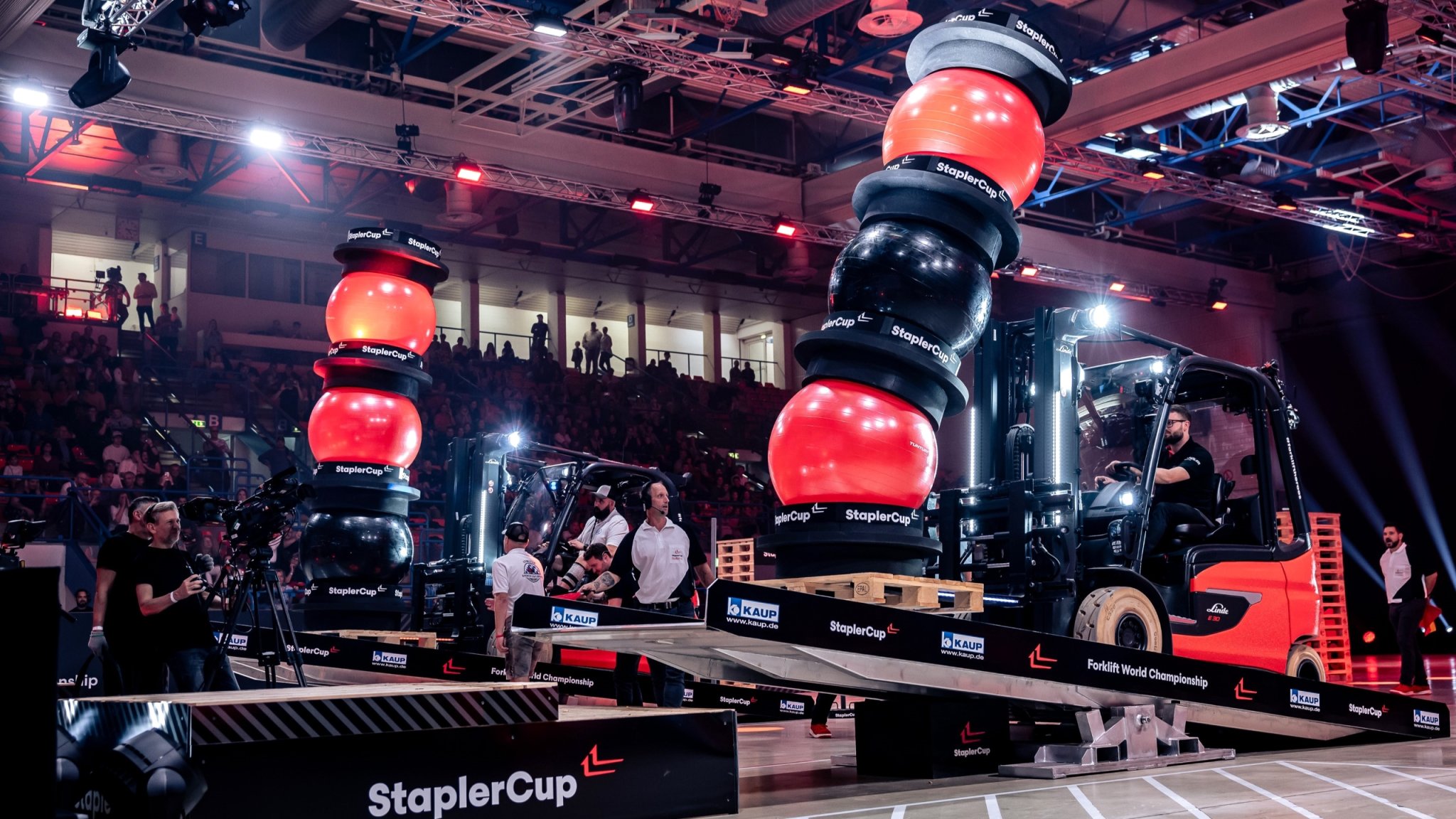

For the last 19 years, Germany has hosted a competition that rewards precision, focus, speed, and finesse. Oh, and the “athletes” need a valid forklift license. Yes, forklift racing is a thing, and the once-dominant German team surrendered its supremacy on its home turf. Welcome to my new rabbit hole.
The StaplerCup is the brainchild of Linde Material Handling, a German forklift manufacturer. Partly a marketing ploy, I’m sure, but also an acknowledgment of the unsung but vital profession. Makes sense, ja? But what do staplers have to do with forklifts? Everything! Because forklift translates to stapler in German.
According to the Wall Street Journal, the StaplerCup debuted in 2005 and was open to certified “forklift heroes.” Initially a home-country competition, the event welcomed international teams in 2008. However, the forklift race remained mostly Deutschland-dominated.
Eventually, as word got out about the quirky competition with legitimate bragging rights, more countries entered, and the national competition with international friends converted into an official world championship this year. The previous German Forklift Driving Championships is now the Forklift World Championship. Sounds even more intense.

“We’ve seen the StaplerCup community grow and attract participants from an increasing number of countries, so it made perfect sense to expand internationally,” StaplerCup Sports Director Martin Stadtmüller said in a press release. “Our goal is to build the largest global forklift community, unite forklift sports enthusiasts worldwide, and find the best of the best.”
The 2024 StaplerCup attracted participants from 11 other countries, mainly European. China, which had participated in 2019, was the non-EU outlier. Teams and individuals competed in head-to-head battles to showcase their skills in several disciplines. Speed is important, but so is accuracy.
They’re not racing on a track (yet), but they’re not using basic palettes, either. They’re stacking exercise balls and sorting pens or building towers out of odd-shaped pieces and then maneuvering that load toward a finish line. In a previous event, competitors were tasked with using a forklift scale model to retrieve pieces from a table. Sounds easy enough, but in a double-forklift style, the model could only be moved via a real forklift’s fork, which it was placed on.


This year, world championships were awarded for men, women, and national teams. The Corporate Cup, which is comprised of company teams, is part of the StaplerCup awards but is not recognized as a world championship. Germans were crowned in the individual classes, but it was Belgium, a noted underdog, that outskilled Germany and Slovakia for the gold medals.
Stadtmüller told the WSJ that his countrymen were getting too comfortable, and looked forward to their long-standing dominance being challenged.
“I want a real competition,” he said. “Sometimes too much confidence can be dangerous.”
Next year’s StaplerCup will have even more skilled competitors, including teams from the U.S. and Canada.